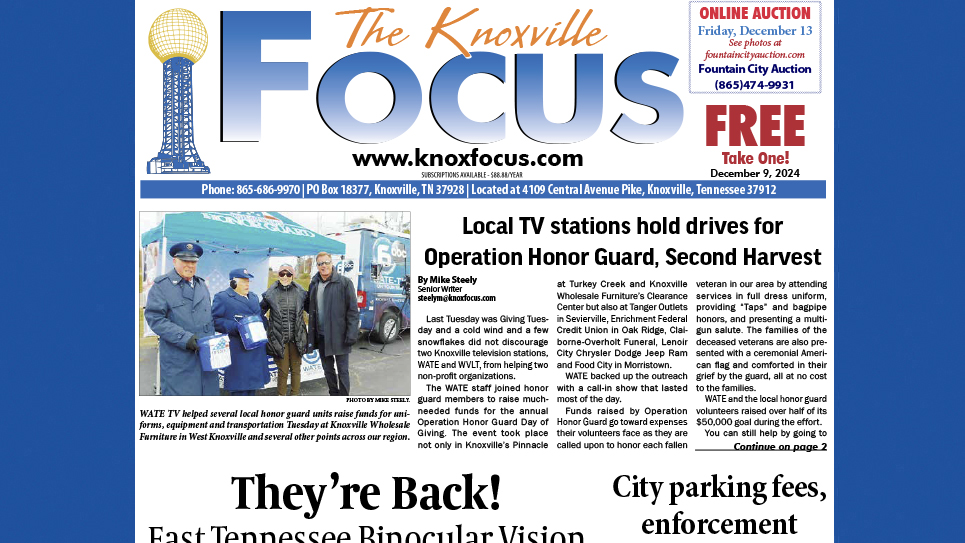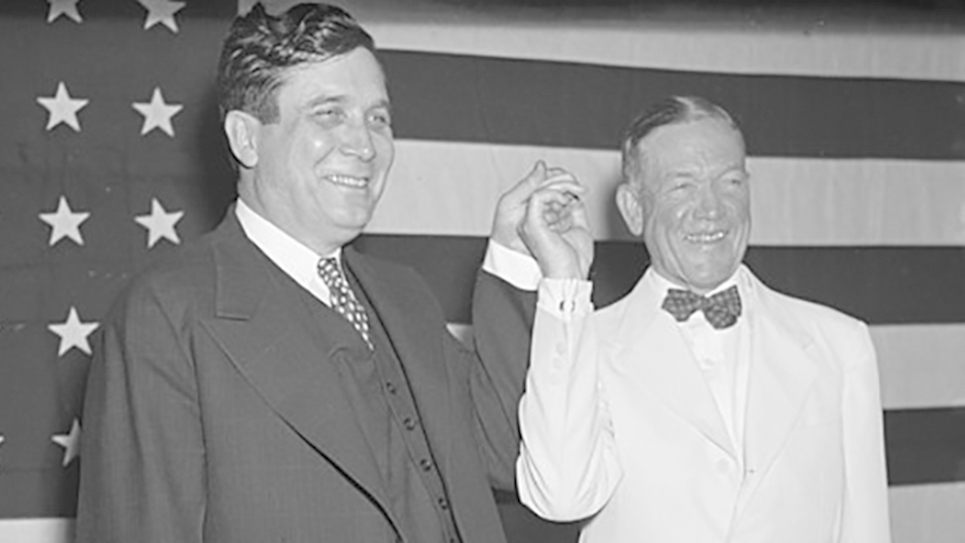By John J. Duncan Jr.
My late wife, Lynn, several times over the years said to me, “Please, no more books.” My house and offices have always been filled with books
I used to tell her that all those books were what was going to keep me alive because I would have to live to be 100 to even come close to reading all my books.
Bob Knisley was my English teacher at Holston High School for both my sophomore and senior years, and he based a large part of our grades on the books we read.
He gave five points for books like “Goodbye, Mr. Chips” and “The Old Man and the Sea,” and 15 or 20 points for longer books like “How Green Was My Valley.” I credit Mr. Knisley with much of my love for reading, although my parents were big readers, too.
I have heard it said that “readers are never bored,” and I really believe that. I usually have two or three books going on at the same time.
During my 46 years as a lawyer, judge and congressman, much of my reading was work-related, but even then (as well as now) I tried to read a wide variety of books.
Currently, I am reading “The Hour of Fate” by Susan Berfield, about the battles between Theodore Roosevelt and J. P. Morgan; “Educated” by Tara Westover, about a girl who grew up in a hermit-like family in very rural Idaho who wouldn’t even let her go to school, yet she ended up with a doctorate from Cambridge; and “Electric October” by Kevin Cook about the 1947 World Series.
My fellow Focus columnist, Dr. Ferguson, got me into a men’s book club and every member is much smarter than I am.
The book for our next meeting is “Superminds” by Thomas Malone, and it is about the surprising power of people and computers thinking together. This is a very tough book for a Luddite technophobe like me.
I know computers have done and are doing miraculous things, and I enjoy using my iPad and a cell phone that’s millions of times smarter than I am.
But I think it is also sad that computers have destroyed any real privacy and have turned some peoples’ brains into mush and some young people into robots. They have done away with much human and family interaction.
I like to read histories, biographies, mysteries, and books about sports. The book “A Man Called Peter” by Catherine Marshall had a big and good effect on me during my college years, and I re-read it a few years ago.
I also liked “The Fountainhead” by Ayn Rand, and “Path To Power,” the first of a trilogy of books by Robert Caro on the life of Lyndon Johnson.
Because of my legal background, I have really enjoyed books by John Grisham. I know people around here who are just like the characters in his books. And I have enjoyed the Lake Wobegon books by Garrison Keillor.
I also like British mysteries by Jeffrey Archer and those by P. D. James and M. C. Beaton. And if you are interested in the history of this region, I highly recommend “Born Fighting: How the Scots-Irish Shaped America” by James Webb.
The book I mentioned earlier about the ’47 World Series has a small section about how Jackie Robinson became the first Black player in the major leagues.
Happy Chandler, a former Kentucky senator and governor who was then commissioner of baseball, overruled the team owners after they had voted 15 to 1 to not let Robinson play. Chandler also told the Chicago Cubs and St. Louis Cardinals players he would ban them from baseball if they carried out a threatened boycott.
But one of the greatest sports speeches of all time had to be when Lou Durocher, manager of the Dodgers, called a midnight meeting after he heard most of their players had signed a petition saying they would refuse to play if Robinson did.
Speaking in his pajamas, Durocher said: “I hear some of you fellows don’t want to play with Robinson. I hear you have a petition. Well, boys, you know what you can do with that petition? You can wipe your – – – with it. I’m the manager of this ball club, and I’ll play an elephant or a – – – – zebra if he can do the job, and to make room for him, I’d send my own brother home.”
He added: “There’s more (Black players) coming up behind him. They’re hungry, they’re good athletes, and there’s nowhere else they can make this kind of money. Unless you wake up, they’ll run you right out of the ballpark. So, I don’t want to see your petition. This meeting’s over. Go back to bed.”






